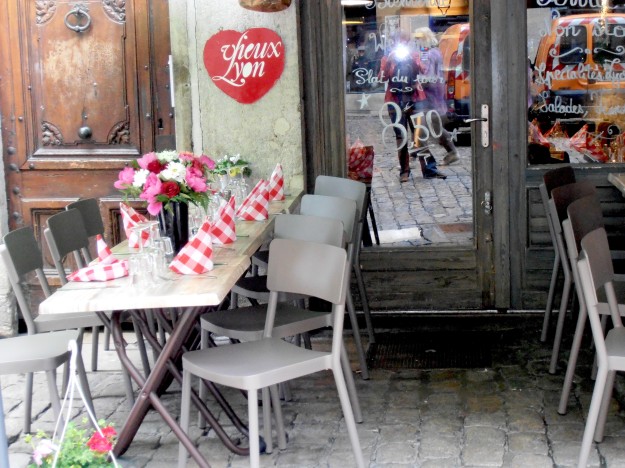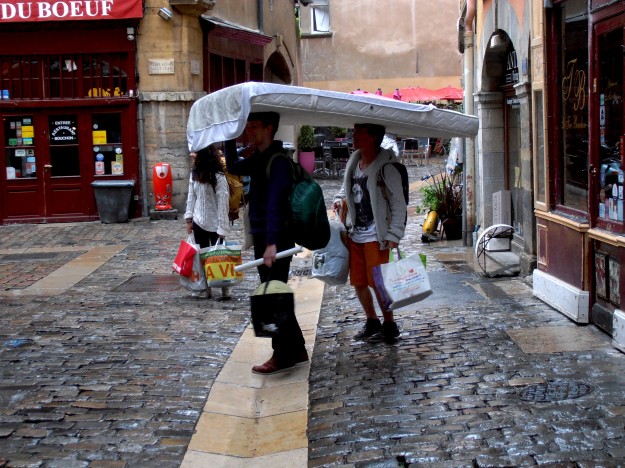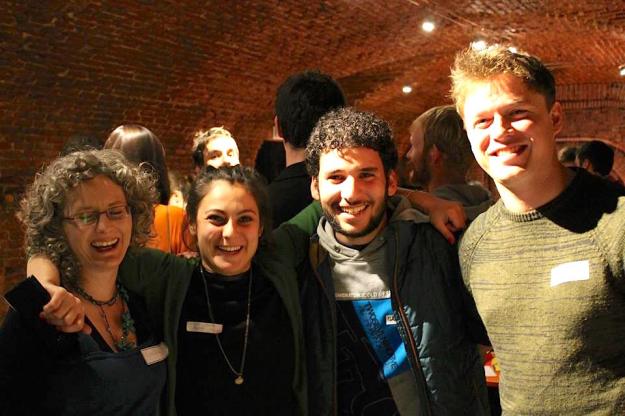Talking VERY VERY LOUDLY
When Spanish people socialise, even if it’s just two or three of them meeting up for a coffee, a curious thing happens: They seem to lose any awareness that there are other people around them. I’ve had to raise my voice on many occasions to keep communicating with a friend sitting a few inches away from me because of a group of diners in another corner of the restaurant. They were not drunk or rowdy, just Spanish.
In the UK or Germany, this kind of behaviour also happens. Usually, though, the perpetrators of noise pollution are either hormone-crazed teenagers or legless lager louts. In Spain, well-dressed middle aged ladies have no trouble outhollering a busload of pupils on their annual school trip – after all, they have half a century of practice under their belts and are eager to demonstrate that they are not fettered by the shackles of consideration for others or any such social niceties. The louder the merrier!
Kids everywhere, at all hours
Spain has one of the lowest birth rates in the world – just 1.3 whelps per woman in 2015. Even child-averse Germany’s is higher (1.4).
And yet, you cannot get away from tantruming toddlers. A true paradox.
A visiting UK friend remarked to me once, on seeing a 5-year old being wheeled around in a buggy one late Saturday afternoon, “That child is too old to be in a push chair!” Indeed. What she didn’t know was that the vehicle wasn’t about saving the poor little blighter’s legs, but about saving everyone else’s nerves much, much later on in the day. That buggy, was, in fact, a mobile bed.
The parents were going to be out till the wee hours, enjoying good food and wine. After running around and shouting its little head off, the sweaty, worn-out sprog would eventually collapse into the wheeled sedan chair around 1am. It’s my personal theory that this is why events like concerts start so late here in Spain – everyone has to wait patiently until the kids finally pass out on their own accord before people can get on with the adult stuff.
In Germany or the UK, a young child in a restaurant (or any public place) after 8pm is a rarity. There’d be disapproving looks. The little one needs its sleep. Some would consider dragging a cranky minor around in the evening to be kind of child abuse. Not so in Spain, school night or not.
Incidentally, Spain has the highest rate of “fracaso escolar” (lit. “school failure”) in the European Union. According to Eurostat data released in 2015, 21,9% of Spanish students abandon the education system prematurely without any qualifications, compared to an EU average of 11.1%. Am I the only one wondering whether, perhaps, there may be a possible correlation…?
Finders Keepers
If you happen to lose your bag, your wallet, your favourite pen, etc, you may as well say goodbye to it the second you notice. The chances that anyone will hand it in or, if you’ve left it in a shop or a restaurant, keep it under the counter in case you return, are extremely slim. If you’ve forgotten it at someone’s house it’s perfectly safe, of course, but strangers encountering lost property seem to operate a strict finders keepers policy.
This miserly mindset, you may be surprised to learn, is sanctioned by a saint. Yes. A saint. An Italian one that goes by the name of Saint Rita, aka the patron saint of impossible causes.
There’s a Spanish saying that’s commonly evoked when someone is blessed with some unexpected providence: “Santa Rita, Santa Rita, lo que se da, no se quita”. Loosely translated: Saint Rita, Saint Rita, what is given cannot be taken. In other words: finders keepers.
I lost a nice pair of sunglasses once here in Toledo, in either one of three shops that I frequent on a weekly basis. They never surfaced again. I also lost a laptop in Copenhagen, which duly found its way back to me. Thankfully, nobody’s ever heard of bloody Santa Rita in Denmark! I rest my case.
The smoking
Before moving to Spain, I’ve never really had any close friends who smoked. It’s not that I’ve consciously avoided making friends with smokers, but it just so happened that people I connected with didn’t usually smoke.
Smoking prevalence is higher in Spain compared the UK, where I’ve spent most of my adult life – 21.1% of Spaniards smoke compared to 18.4% of Brits. In the US, just 16.3% of the population are smokers and in Canada it’s 15.6%.
Another factor, in my observation, is that in Spain, just about anyone, regardless of social background or level of education, may whip out a cigarette on a balmy evening. In the UK, the US and Germany, by contrast, people who went to university are much less likely to be hooked on tobacco.
Smoking is forbidden in Spain in bars and restaurants, and this is widely observed, but if you’re from North America or Northern Europe, you may be in for a surprise if you get invited to people’s private houses for a meal, a party, or some other type of social gathering. They will light up. Right there at the table. In a closed room. It will fill up with smoke, your eyes may be streaming, your unprepared respiratory system may start to convulse in distress. And nobody will give it a second thought. You have been warned.
* * * * * *
Disclaimer (of sorts): I admit, I was scraping the barrel when I wrote this post… the positives of hanging out with Spanish folk far outweigh the negatives. I gather from other blogs that, in many countries, new arrivals, especially those who are longer in their early twenties, tend to find it hard to enter into rewarding friendships with locals. In my experience – and I’m far from being outgoing, personality-wise – this is not a problem here in Spain, where people, on the whole, are welcoming, open-hearted, generous and inclined to strike up a conversation with a stranger and show genuine interest in them.
As an aside, the old stereotype that Spanish people are notoriously unpunctual, is, in my opinion, totally unwarranted. People may, on occasion, be a few minutes late. I may be a few minutes late. Noting out of the ordinary. The bizarre thing is that the Spanish seem to have internalised this belief about their chronic unpunctuality, and are highly apologetic about this perceived shortcoming – particularly those, it seems, who are rarely late themselves. I’m not quite sure what that is about. I’ve heard that poor time keeping is particularly rampant in the south of the country rather than in the central/northern parts, but since I have little experience of southern Spain, I can’t really comment on that.
You may also be interested in my specialist language blog, see here: http://multilingualbychoice.blogspot.com



















































































